Fitness “Professional”
Sadly this guy and his “health elixir” would fit right in today.
It implies that someone who works in this field is a “professional”….right?
a : of, relating to, or characteristic of a profession
b : engaged in one of the learned professions
c (1) : characterized by or conforming to the technical or ethical standards of a profession (2) : exhibiting a courteous, conscientious, and generally businesslike manner in the workplace
So why the hell is the industry and the people in it so disparate when it comes to “professional” practices?
There is no standard operating procedure, it’s just a miss-mash of information and do what you want: Yoda’s, products, training systems, workouts, programs, equipment etc.
My argument has always been that there is such a low-level of entry that anyone can get in and be an “expert”. —-> (screw people up and give those of us who actually take this profession seriously, a bad name.)
Performance enhancement, this is not. Charlatans at work.
There is nothing that says a “trainer” has achieved at least some level of standardized knowledge and ability,
” Trainers don’t need to meet any federal or state requirements. Even the woman who waxes your upper lip may have had more training–and she is certainly subject to more legal oversight–than the one who pushes your cardiovascular, muscular, and nervous systems; jacks up your heart rate and blood pressure; and strains your joints and ligaments. “Others who hold themselves out to be experts need to be licensed,” says Mark B. Bullman, an Atlanta lawyer, “yet somebody who wields heavy weights and guides your personal health needs nothing.” No college degree. No professional certification. Nada.” – Dimity McDowell
This has led to a culture that relies less on Evidence Based, best practices and more on “individual training style”. <—-in the medical field this is called quackery….or voodoo, or magic, but not science.
” a study of health-and-fitness professionals published in the Journal of Strength and Conditioning Research found that trainers who had five years of experience but no college degree scored an average of 44 percent on a test of basic fitness knowledge. Those with at least a bachelor’s degree in exercise science scored an average of 68 percent. Trainers with an ACSM or NSCA certification got 85 percent, while those with other certifications or none at all came in at 36 percent.”- Dimity McDowell
How does this happen, how can certified people score an average of 36%?
Because, instead of requiring a basic level of knowledge so we can develop, go-to rules and procedures, like EVERY other profession, fitness professionals can just wing-it based on how they feel and what they want to do, which is obviously limited by what they know.
“There is no accepted SOP (standard operating procedure) in this profession.”- Gray Cook
The typical scenario, for someone hiring a trainer is usually something like this:
Hire a guy certified in Kettlebells….so the whole workout is Kettlebells…
A girl certified in Yoga….so you do Yoga
Someone certified in CrossFit….so you do some lifts and then some metabolic circuits..
It’s not a that these things are good or bad but instead;
How can all these things be appropriate for the same person with the same host of issues, abilities and goals ?
The simple answer is: They Can’t….parts of all of them may be appropriate, but on the whole as training programs they can’t ALL be appropriate for the same person in totality.
Logic tells us this….
The questions that need to be asked are: Are these modalities appropriate for the person? How do you know? Is it evidence based or just your personal biases that chose these methods over others? Can you logically defend your choices?
It’s not like doctors or physical therapists or dentists all use the same protocol, procedures and modalitites all the time.
But they would be able to confidently explain to another professional in that field why they did what they did.
Why are they confident about their decisions?
Because those industry’s have adopted standard operating procedures and evidence based, generally accepted, practices.
They’re not the wild west of practitioners and accepted methods like the fitness industry.
Think about it: How many times does a “trainer” have a workout written BEFORE doing an assessment on a client?
In my experience, that’s the NORM in this industry.
The “professional” is prescribing the “medicine” without knowing what the issues/ limitations/ strengths/ weaknesses and individual peculiarities, ie. sickness, of a person is.
They’re making a workout based off of their biases….not their findings.
If it happened in medicine, that person would be a quack and lose their license.
…..in fitness, it’s passed off as adhering to their “training style”, as if willfully ignorant and lazy is a style.
Recently, I had a potential client refuse to do an assessment. <—I refused to train her.
“I’ve had lots of trainers and never had to do THAT before. Can’t you just tell me what to do?”
Well….ummm, yeah….I can, AFTER I find out WHAT you can and more importantly can’t do.
Clairvoyant, I have yet to master this skill….how did these previous trainers “know” what exercises and what loads were appropriate?
Answer: they guessed, did things the trainer “liked” based entirely off of the trainers own biases and hoped the client would be entertained and buy more training….
Point is, we, as “professionals” should be looking to institute evidence based best practices.
No more mysticism and magic….
No more deferring to the Yoda of the minute and the new contraption they’re pushing.
The end of the Guru and Guruism.
No more, let’s do this workout today or that workout today with this that and the other thing we like.
Not using the current operating procedure of throwing sh@t against the wall and seeing what sticks.
A Twitter follower of mine recently posted something to the effect of:
Fitness professionals should stop pulling each other down. Arguing about how one form of training is superior of inferior to another is counterproductive, we all have our own “style”…emphasis mine.
But here’s the thing…we KNOW, or should know, what good movement is…we have a really good understanding of how the body works, how the brain processes information, how the biology works, the anatomy….physics….
“The physiology of the human being is not debatable, only the programming applied to it”- Kelly Starrett
The question isn’t, “why are we debating the methods used”?
If we’re being intellectually honest, using and striving for scientifically backed (even if only by theory) best practices, and consequently BEST OUTCOMES for clients, the question should be:
“Why are we NOT debating the methods used more often and more vigorously”?
Why are we NOT questioning the status quo?
Why are we NOT pointing out flaws in programs, exercises and movement disciplines?
Why are we NOT willing to reject faulty concepts and constructs?
Unfortunately, I think the answer to those questions is:
Most fitness professionals don’t have the requisite knowledge in biological sciences (anatomy and physics) and practical knowledge in exercise training to have an intelligent discussion beyond what you would find in a typical fitness magazine.
Which is to say, not professional at all…..
How can we, as an industry, score 44% on a basic fitness knowledge test and expect to have an intellectually challenging discussion on what we’re doing?
Let’s face it, if you went into a room full of group exercise instructors (many of which are “certified” personal trainers) you would find that by in large it’s still believed to be dangerous to squat past 90 degrees and the knees can’t go past the toes and standing on inflatable disks improves balance….
Knees past the toes and I bet YOUR squat doesn’t look this good.
How can “professionals” still believe and hold on to these beliefs?
Maybe because we don’t know the material in the first place.
We Failed the Test.
“If we are to gain credibility and acceptance as a profession, we must assume and accept standard operating procedures” –Gray Cook
What’s This Rant Mean For You?
Buyer beware.
If you’re considering hiring a “Fitness Professional”
#1. Don’t get hooked with fancy words or equipment. There is NOTHING new, it’s all old recycled and repackaged.
Kettlebells? At least 200 years old, maybe older.
TRX? Hello gymnastics rings….
Sliders? Slide boards were popular 15 years ago…
Vibration Training? Originally used by the Soviets on Cosmonauts around 1960 or so.
CrossFit? It was called interval training….only the modalities are different this time.
Balance Training? They used to call it a balance beam and it actually worked….
Your trainer shouldn’t be focused on things but instead on principles.
“Methods are many, principles are few. Methods always change, principles are NEVER do” -Alwyn Cosgrove
Don’t worry about what the exercise or program is, worry about the result.
#2. Look for a college degree IN THE FIELD.
I know plenty of people who are good trainers who have NO degree, but they’re only a handful of the group of competent people I know of in this field.
In general, make sure they have a degree. At least you know they took biology (anatomy) and physics (biomechanics).
I know people with zero certifications who are waaaay better at this than people with a whole wall of toilet paper certifications, but those two organizations are the two most mainstream ones that actually take a decent level of knowledge to become certified through.
In general, certifications suck. I’m certified by the NSCA and disagree with LOTS of stuff they put out but they do base their recommendations on peer-reviewed research and not marketing. Sometimes the research sucks, but at least it’s something.
Sorry, but ACE, ISSA, AFFA and most of those other ones are a joke.
Again, I know perfectly capable people with these certifications, just saying, in general, I wouldn’t recommend someone in my family hiring a trainer with any of these sight unseen.
Why? I have a friend who literally had a subscription to 3 fitness magazines for a couple of years, took the ACE exam and passed.
That was the extent of her fitness education.
She’s now a “fitness professional”…from reading magazines.
Should this be the extent of your “Professional” knowledge?
Would you go to a dentist who gained their professional knowledge from the news stand?
#4. Find someone who was or is a former athlete or at least did some type of demanding physical training.
These people tend to:
- Still workout themselves, so the BS is a little lower.<—-Time UNDER a bar means a lot…
- Understand what it feels like to work, sweat, be fatigued. <——this matters more than people think
- Understand being injured/ hurt/ banged up and how to work around and through it a little better than life long Desk Jockeys.
- Have a better innate understanding and ability to teach movement.
I know, I take this sh@t seriously and in the end, it’s not life and death…it’s just the gym, it is just lifting weights…..that’s it.
But as someone who considers himself a professional, we, as professionals, are responsible for people’s bodies and they only get one, no second chances, no do-overs, it’s the only place they have to live.
You screw them up….that’s it, someone else has to un-Fudge tastes good them up, if they even can.
Further more, we, as a profession, always complain that no one takes us seriously and we can’t get the recognition, respect and pay rate we deserve.
Well, quite frankly, we don’t deserve it.
Not until we as an industry hold ourselves and each other to a higher standard.
“trainers who had five years of experience but no college degree scored an average of 44 percent on a test of basic fitness knowledge.”
Case in Point: I had a “fitness professional” (20+ years teaching classes) use the term “muscle confusion” the other day as if it were a legitimate scientific terminology.
I told her that there is no such thing, muscles can’t get confused, it’s a made up term used for marketing a infomercial product…..
She didn’t believe me until she did a search on Google Scholar. <—— Zero Hits from scientific journal articles.
If you’re in this profession and the totality of your “Continuing Education” is on the level of reading magazines, watching the Biggest Loser and trolling websites to stay up to date, is this really your profession or is it a hobby?


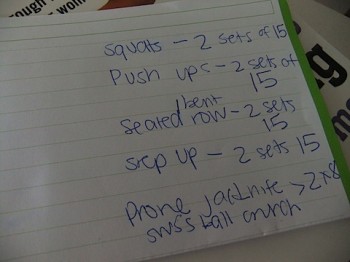

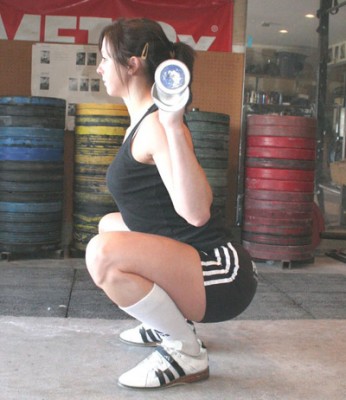
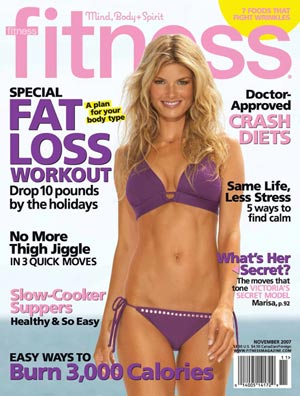
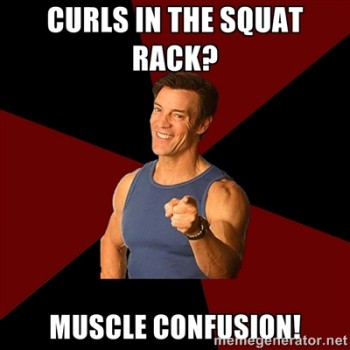

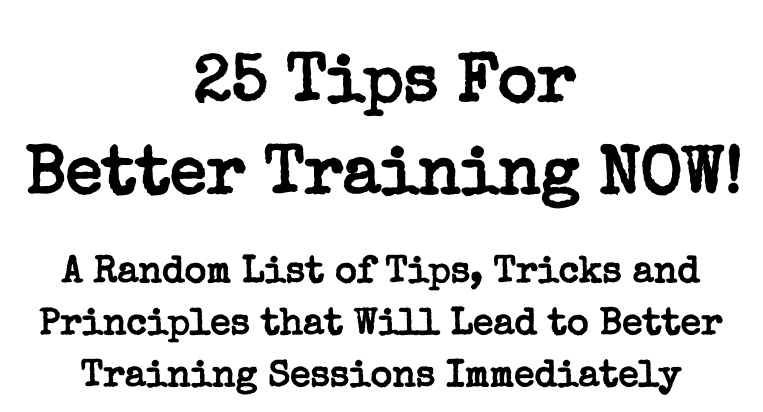
This article sucks though. You sound like you know everything there is to personal training, when in reality, it is an art, it is like painting a picture. There is more to it than objective ‘truths’ which you seem to like staying up to date on. I’ll admit, you make some good points, but the point about muscle confusion not being a real thing? You think too literally; Muscle confusion is simply exposing the body to many different stimuli to refine it from many different angles, just as a musician would practice many different songs and genres in order to refine his art.
Sounds like there are some smart ‘mystics’ and ‘magicians’ out there stealing your clients hahaha 🙂
BIlly,
I definitely don’t know everything there is to know. BUT I do know that if fitness professionals want to be treated, respected and compensated as professionals we need to accept and establish evidence based practices and hold ourselves as a profession to a higher standard. If every other health profession can establish has an evidenced based standard operating procedure, we can and should too.
Is there some subjectivity to training? Of course, there is. Just like anything where you’re dealing with individuals there has to be some “art” to the application. But even the art is based around evidence and not mysticism.
It’s not about literal thinking, its about establishing an industry standard and holding to that standard as professionals. Take, for example, your definition of Muscle Confusion,”Muscle confusion is simply exposing the body to many different stimuli to refine it from many different angles”. That doesn’t really describe any physiological phenomena.
Would running a 5k one day then doing 1rm squats the next be muscle confusion?
Would doing lunges for one part of your workout then leg press for the other be?
What if we used the same exercise but changed the load, reps and sets?
All of those would qualify as different stimuli and, work the muscles from different angles. But what if we squat one day and bench the next, does that qualify?
That’s the problem with using non-defined terminology professionally, we can’t accurately describe and discuss a topic because the words and phrases have no meaning.
Hope this helps clarify my point.
Thanks for reading and commenting.